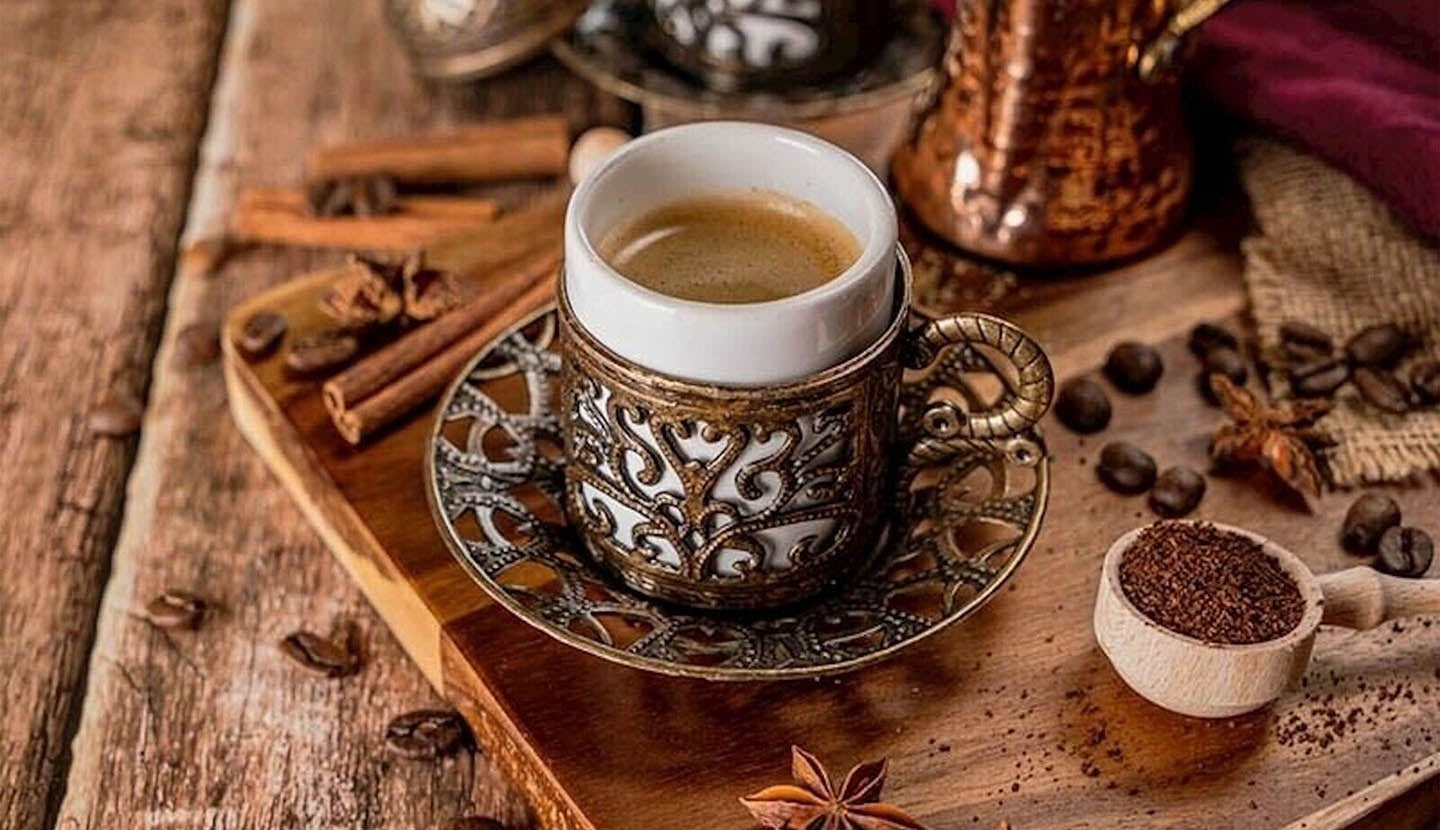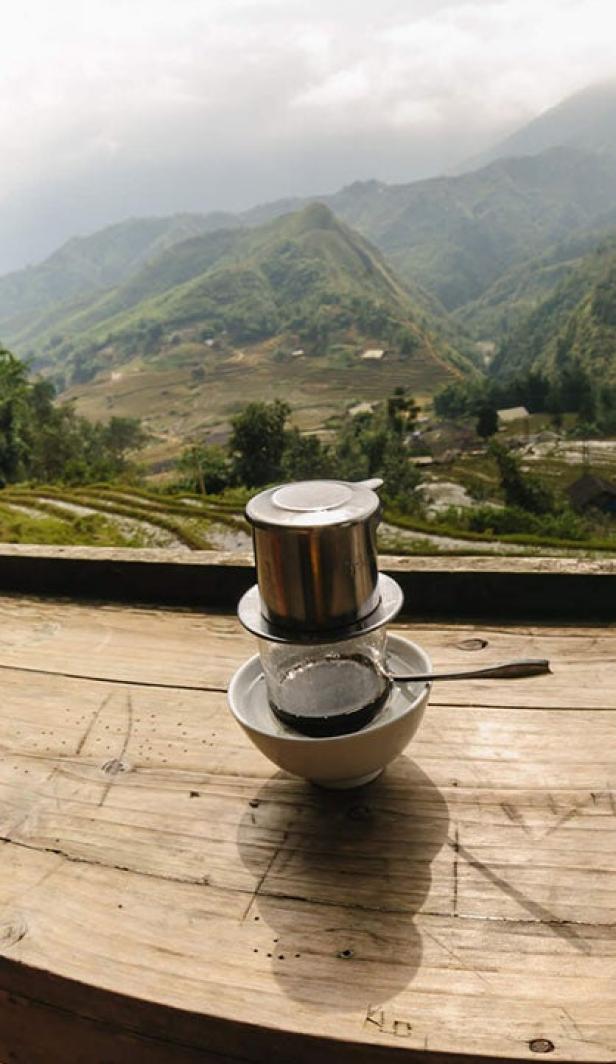Arabian coffee culture
In the Middle East, Arabia and North Africa, coffee (Qahwa) has been widely used to settle marriages, contracts, and blood feuds, it is seen as an offering of peace to end mutiny. In certain parts of the Middle East, Arabian coffee is used to greet those that come to visit. It is said that if someone refuses an offering of coffee when entering in one’s home, then they are about to ask you for something very close to their heart, such as forgiveness or permission. If this is accepted, then Qahwa coffee is drank in celebration.
In many Arabic societies, meeting up together with for a cup of coffee is reason to get together and discuss news, agreements and mutual interests. In most traditional homes, the head of the household will take the first sip of Qahwa coffee to make sure that it is satisfactory for the rest of the family to drink too. There is a term used for Qahwa that does not taste satisfactory, and therefore may tarnish the reputation of the head of the family, if served to others. This is known as “Finjan al hail”.
Arabic coffee today continues to inspire the people of Arabia, the Middle East, and North Africa to write poetry, music and art.
The history of Arabian Coffee
Coffee was, according to apocryphal legend, discovered in Yemen a thousand years ago. The story of the goat herder suggests that a herder named Ali, thought that after his goats ate the fruit of a certain shrub, their energy levels raised. He then took the shrub to the nearby monastery and used the berries to keep himself awake during the long hours of meditation. The other monks considered the shrub to be a sedative and thus threw the shrub into the fire to burn.
Discover more about coffee history here.
Is Arabian coffee made of Arabica beans?
Arabian coffee is not primarily made of Arabica beans, but usually is. The reason for this is primarily geographical as well as due to market supply. There are large amounts of market grade Arabianca coffee or Turkish coffee, that are of unknown origins. However, there are some Arabian coffee blends that are a blend of both Arabica and Robusta coffee beans.
Arabian Coffee Brewing Methods
There are various brewing methods around the world, but most Arab countries use one of two methods. Most Arabian coffee may be served with a hint of cardamom or served plain. The coffee beans may either be heavily or lightly roasted, before the cardamom is added. The coffee traditionally would be roasted at home and then ground, brewed and served for guests. Due to the coffees bitter taste, it would be served up with dried fruits, nuts, or candied fruit to soften the bitter taste.
For the serving of the coffee a pot called a “Dallah” is used, the freshly brewed Arabian coffee is poured into small cups, that do not have handles and the amount of coffee usually just about covers the bottom of the cup.
How to make Qahwa coffee
As mentioned, the Qahwa coffee is the most popular throughout Arabic coffee culture. The coffee is made from green coffee beans and cardamom. The Qahwa coffee is so important in the traditional values across Arabic countries that it is also the chosen hot drink to be served at weddings and other celebrations. It is also consumed for breaking the fast-during Ramadan.
Ingredients
- Green coffee beans, lightly roasted and also make sure they are coarsely ground
- Cardamom crushed
- Water
- Saffron strands
Brewing process
To make the most authentic Qahwa coffee, the water will need to be brought to the boil in a saucepan. Once the water is boiling this is when you need to add the coffee. After around 10 minutes of boiling, add the crushed Cardamom, then stir for around 5 minutes.
Turn off the heat and cover the pan to allow the coffee grounds to settle at the bottom. This should be left for about a minute, and do not stir. This is when the Saffron should be added. Strain and pour the now steaming coffee into your chosen mug, or teapot. Now, your very own Qahwa coffee is ready to be served to your guests.

How to order an Arabian coffee
If you’re planning on heading to the Middle East for a well-deserved holiday, then you will obviously want to know how to order the perfect Qahwa coffee for you. Below are a few ways to order your coffee:
- • Qahwa Sada = Black coffee with no sugar
- • Qahwa Ariha = Lightly Sweetened coffee
- • Ahwa Mazboot = Medium amount of sugar in coffee
- • Qahwaziyada = Very sweet coffee
Arabian coffee is much more than just a drink in Arabic culture, it is a way of life and bringing people together. The Arab world respects and are very careful about carrying on traditional brewing and drinking methods of Arabian coffee.
That is our trip to the Middle East complete and the end of our Arabian coffee guide and the rich traditional values that come with it. If you want to continue your journey around the coffee hotspots of the world, then why not read our guide on Malaysian Coffee next.
Today’s community favourites




